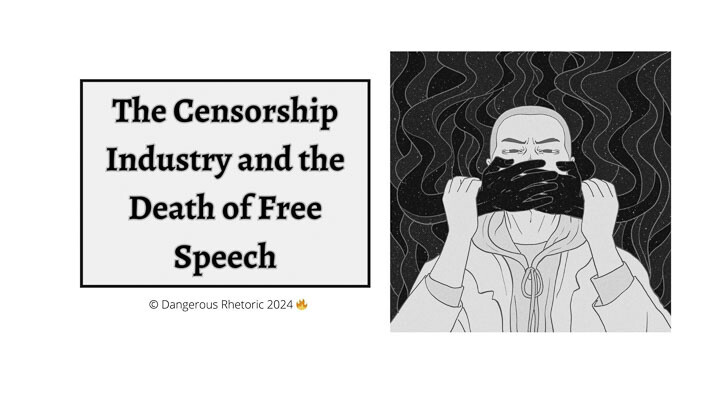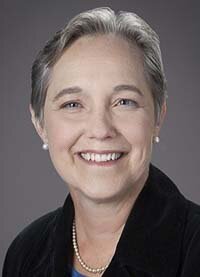
Nancy Churchill believes a Republican-led Washington legislature is our only chance of opening an investigation into the UW contribution to the death of free speech
Nancy Churchill
Dangerous Rhetoric
Mike Benz. You may never have heard of him, but you need to remember his name. Mr. Benz is the executive director of the Foundation for Freedom Online and a former State Department diplomat. In a recent interview with Tucker Carlson, Mike Benz laid out the foundations of the censorship industry and discussed how it is the “inversion of democracy.”.

You may have sensed that America’s republic, as defined by the U.S. Constitution, was dead. After watching this interview, you will know that your instincts were correct, and you will also know who committed the murder.
The Tucker Carlson interview is long and informationally dense, so you may need to listen to it more than once. Dr. Robert Malone in his Substack newsletter, provides some additional thoughtful commentary and a transcript. You’ll want the transcript, because you’re not going to believe your ears.
Color revolutions experts turned their skills against Americans
Essentially, government experts in the Department of Defense who conducted foreign false flag operations to topple foreign governments in the name of democracy, turned against Americans and the constitutionally protected commitment to free speech.
In a nutshell, populist thought leaders and simple citizens threatened to disrupt approved-by-the-government “consensus” on diverse topics like Brexit, Ukraine, the 2020 Election, Covid-19 and mail-in voting. As a result, government officials worked to manipulate social media platforms by forcing them to change terms of service, and in the EU, through new censorship laws.
The development of the censorship industry was initially done under the name of “national security” with the thinnest of links to foreign interference via “Russian disinformation.” Later, when the Trump Russiagate story was disproven, the reason for the censorship morphed into “protecting democracy” and “democratic institutions.”
Benz described, “… you could literally be on your toilet seat at 9:30 on a Thursday night and tweet, ‘I think that mail-in ballots are illegitimate’ and you were essentially then caught up in the crosshairs of the Department of Homeland Security classifying you as conducting a cyber attack on US critical infrastructure because you were doing misinformation online in the cyber realm.”
Organizing the Censorship Industry
Benz described, “… the field of censorship science fuses together two disparate groups of study, if you will. There’s the sort of political and social scientists who are the thought leaders of what should be censored, and then there are the quants, if you will. These are the programmers, the computational data scientists, computational linguistics.”
In the interview, Benz describes how the federal government organized the assistance they needed on the censorship project. “They aggregated four different institutions. Stanford University, the University of Washington, a company called Graphica and the Atlantic Council. Now all four of these institutions, the centers within them were essentially Pentagon cutouts…”
The University of Washington connection to online censorship
So, Washington’s taxpayers helped to pay for censorship because the University of Washington provided part of the “army” of specialists who were doing artificial intelligence modeling, crisis informatics, and other research.
Several UW Centers are partially funded by federal government agencies. The UW Center for an Informed Public, headed by Kate Starbird, is partially funded by the National Science Foundation. The UW Center for Responsible AI Systems and Experiences (RAISE) is funded by the National Science Foundation, Bill and Melinda Gates Foundation, Microsoft, Cisco and U.S. Department of Defense.
Benz described the UW connection as , “…the University of Washington, which is essentially the Bill Gates University in Seattle, who is headed by Kate Starbird.” Benz claims that Starbird is “basically three generations of military brass who got her PhD in crisis informatics, essentially doing social media surveillance for the Pentagon and getting DARPA funding and working essentially with the national security state, then repurposed to take on mail-in ballots.”
The Impact of Censorship
Benz described the impact of censorship on the American political landscape in this way: “…this has fundamentally changed the nature of American governance because of the threat of one small voice becoming popular on social media.” “I know virtually nobody in the country had any idea how deep the rabbit hole went when it came to the construction of the censorship industry and how deep the tentacles had grown within the military and the national security state in order to buoy and consolidate it.”
Can our free speech rights be revived? Can we ever have online freedom of speech? The only way to achieve that goal that I can see is to vote for Donald Trump and a straight Republican ticket at every opportunity. A Republican-led Washington legislature is our only chance of opening an investigation into the UW contribution to the death of free speech, and creating some legal boundaries to limit their activities.
Nancy Churchill is the state committeewoman for the Ferry County Republican Party. She may be reached at DangerousRhetoric@pm.me. The opinions expressed in Dangerous Rhetoric are her own.
Also read:
- POLL: Should Washington Raise the 1% Cap on Property Tax Increases?Clark County Today’s weekly poll asks whether Washington lawmakers should raise the current 1% cap on annual property tax increases.
- Letter: The more you knowCamas resident Anna Miller criticizes a recent remark by Rep. Jasmine Crockett as racist and demeaning, and outlines Republican contributions to civil rights history in her letter to the editor.
- Letter: City vehicles speeding on the highwaysVancouver resident Peter Bracchi raises concerns about excessive speeding by city-owned vehicles, based on GPS data received through a FOIA request.
- Opinion: The stage is set for a battle royaleRep. John Ley outlines key legislative battles in Olympia, raising concerns about tax hikes, tolling, and spending priorities in Washington state.
- Opinion: Olympia’s budget blowout – The taxpayer gets the billNancy Churchill says Washington’s $78.5 billion state budget signals runaway government growth and demands urgent taxpayer pushback.










